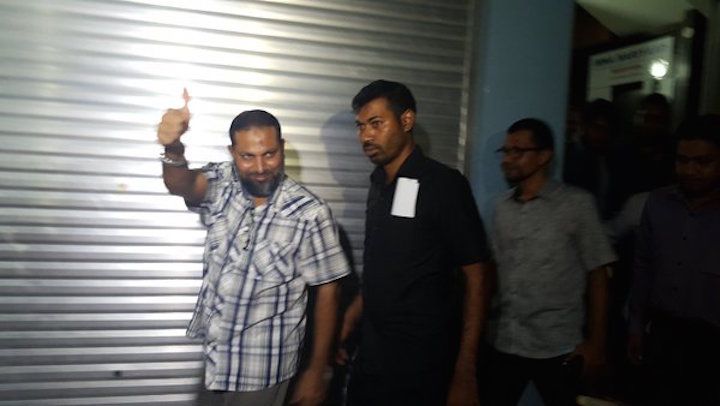Sheikh Imran returned to jail from house arrest
After nearly four months under house arrest, Adhaalath Party leader Sheikh Imran Abdulla was abruptly transferred to prison last night until the conclusion of his ongoing terrorism trial.

07 Feb 2016, 09:00
After nearly four months under house arrest, Adhaalath Party leader Sheikh Imran Abdulla was abruptly transferred to prison last night until the conclusion of his ongoing terrorism trial.
Shortly before midnight, the criminal court voided its previous order to keep Imran under house arrest and ordered the home ministry to take him back to custody.
Imran’s lawyer Husnu Suood told The Maldives Independent that his client was taken to the police detention centre on Dhoonidhoo island around 1:00am.
Suood said Judge Abdul Bari Yousuf issued the court order.
Become a member
Get full access to our archive and personalise your experience.
Already a member?
Discussion
No comments yet. Be the first to share your thoughts!
No comments yet. Be the first to join the conversation!
Join the Conversation
Sign in to share your thoughts under an alias and take part in the discussion. Independent journalism thrives on open, respectful debate — your voice matters.




